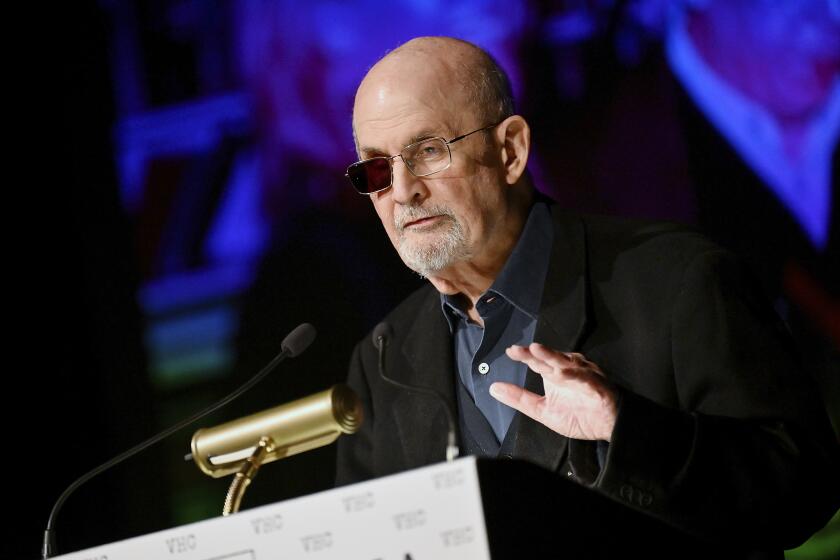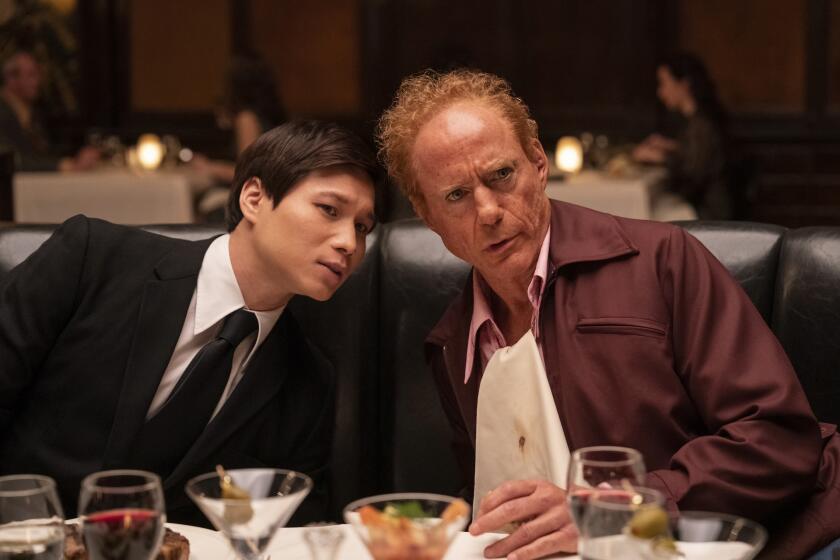PERSPECTIVE ON RACISM : A Well-Funded Entry in the Black Inferiority Sweepstakes : A new book that cites ‘pathological’ reasons for ‘black failure’ threatens yet again to sidetrack serious discussion.
Here we go again. Brace yourselves for yet another heated, ugly public debate on racial inequality in America. A year ago, the focus was on Richard Herrnstein and Charles Murray’s incendiary and deeply troubling book, “The Bell Curve.” Those authors disingenuously claimed not to be writing about race, but their argument that blacks are less intelligent than whites in part because of genetic factors was the only thing anybody wanted to talk about. As a result, a book packed with charts, graphs and equation-laced appendices nevertheless became a huge bestseller: It broke the taboo against open discussion of black inferiority, and many readers just could not wait to get their hands on the “proof.”
Now, with a slightly different line of attack, comes Dinesh D’Souza, a thirtysomething journalist with no formal research training and a well deserved reputation as a polemicist. Based at the same conservative think tank (the American Enterprise Institute) and using the same publisher (The Free Press) as Murray, D’Souza has written what is being billed as a “bold” and “sweeping” study that “challenges the last taboo” about racism. The book has a hopeful title, “The End of Racism: Principles for a Multiracial Society.” But, in fact, it is merely this year’s entry in the black inferiority publishing sweepstakes, ascribing “black failure” to “the pathologies of black culture,” rather than “the content of our chromosomes.”
Straining to fulfill his billing as an iconoclast, D’Souza writes of pathological irresponsibility among the black poor, which has led to their “parasitic dependence on government provision.” He says that in black communities “where the streets are irrigated with alcohol, urine and blood,” we are witnessing “a revival of barbarism in the midst of Western civilization.” He believes that the legacy of Malcolm X “helped to legitimize the culture of the black underclass in the name of race pride,” because Malcolm celebrated “a ‘bad Negro’ version of blackness.”
D’Souza concludes from the existence of a relatively few non-white slave holders that American slavery was not a racist institution. He says segregation was designed by paternalistic Southerners to protect blacks and “to assure that blacks, like the handicapped, would be . . . permitted to perform to the capacity of their arrested development.” He thinks “antiracist education is largely a waste of time because it typically results in intellectual and moral coercion.” Racism, he says, is not an ethical issue at all; it is “an opinion which may be right or wrong, but which in any case is a point of view that should be argued with and not suppressed.”
Liberal reformers, D’Souza says, had hoped that “as blacks entered the middle class, they would start being middle class and stop being black;” but this did not occur, “because many middle-class blacks seem to realize that the reason they are in the middle or upper-middle class is because they are black.” His answer to the question, “What do Americans today owe blacks because of slavery?” is: “Probably nothing [because] slavery proved to be the transmission belt that nevertheless brought Africans into the orbit of modern civilization and Western freedom, so that future generations of black Americans would be far more free and prosperous than their former kinsmen in Africa.”
Bear in mind that a great many powerful people stand behind this book. D’Souza was funded lavishly by theconservative Olin Foundation during the years of its writing. With 100,000 copies printed before a single book went on sale, the publisher has bet a considerable sum on its commercial success. The word around Washington is that some Republican staffers on Capitol Hill have anxiously anticipated how the book might help move the affirmative action debate in the “right” direction. Luncheon meetings to promote the book have been arranged at exclusive business clubs in New York and Chicago, sponsored by the American Enterprise Institute and some of its wealthy patrons.
It is hard to avoid the conclusion that in some influential quarters, when the object of discussion is the African American community, basic principles of decency and of scholarly and journalistic integrity no longer apply. Blacks seem to be held in such contempt that we can be slandered, defamed and insulted without remorse or consequence.
D’Souza’s right to free speech is beyond question. but the responsibility of decent people to hold him and his backers accountable for what they do is equally clear.
* A RESPONSE: Glenn C. Loury and Robert Woodson Jr. resigned last week from the American Enterprise Institute to protest the publication of “The End of Racism: Principles of a Multiracial Society” by Dinesh D’Souza, a research fellow at the institute. Loury and Woodson contend that D’Souza’s ideas, which he discusses on page M2, will inflame rather than enlighten public discussions of race.
More to Read
Sign up for our Book Club newsletter
Get the latest news, events and more from the Los Angeles Times Book Club, and help us get L.A. reading and talking.
You may occasionally receive promotional content from the Los Angeles Times.





